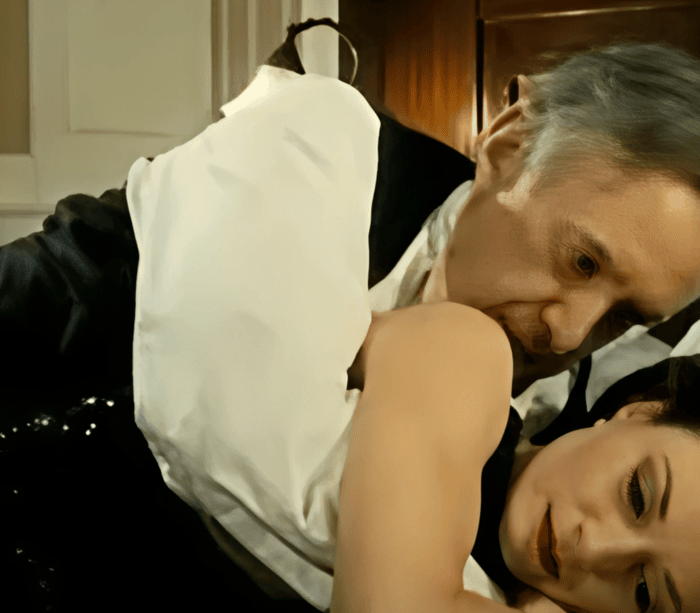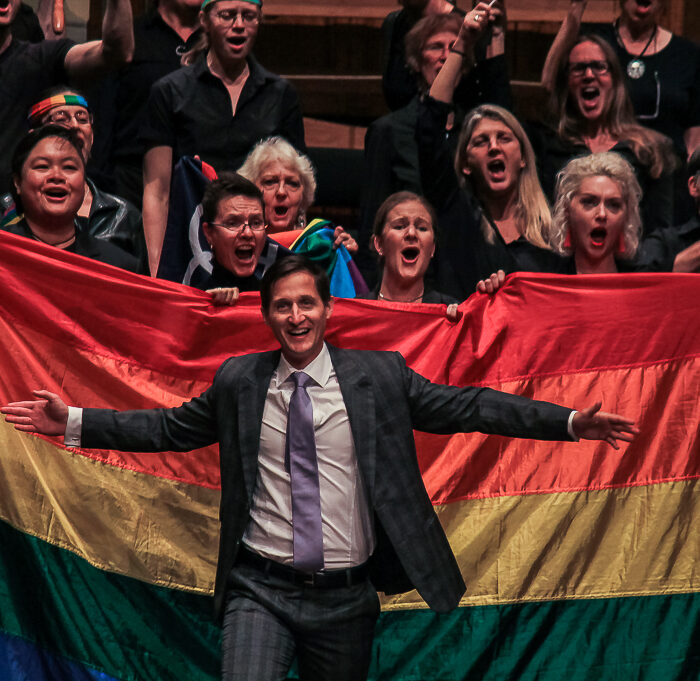
Trekking Through American Opera (Part Three)
By John VandevertPhoto Credit: Cannupa Hanska Luger
Throughout this new series, we will be looking at the history of American opera beginning in the 2000s to the present through a revisit of certain iconic works of the decade and OperaWire’s coverage of them throughout the 21st century. In part two, we looked at five operas that reflect the incredible change in operatic writing, both musically and thematically, during the 2010s. In our final part, we’ll be taking a look at five operas from the late-2010s to early-2020s which represent the exciting developments in opera which have introduced a huge array of techniques, stories, forms, and devices that tell opera in completely new and unexplored ways.
Within the world of opera of the late-2010s to early 2020s, technology has become a widespread phenomenon. From operatic livestreams, although livestreaming itself is relatively new and practically ubiquitous, to video synthesized into opera. The genre of operatic music videos seems to be not so new after all. Then digital enhancements, a prolific voice is Carl Unander-Scharin while one of the world’s first festivals around digital synthesis of theatre and art was held in 2019, and even virtual reality where a lot has been written but it’s safe to say the topic is still controversial. In many ways, opera has even become liberated from classical singing as well/ How about a contemporary “jazz opera”? Among the burgeoning themes of contemporary opera is the exploration of the unexplored cosmos that dive into the unknowns of the expansive unknown that is the sky above us.
The literary genre of science fiction, or “space opera,” is being invoked in operas such as Joe St. Johanser’s “Space Opera – The Musical,” Milica Ilić’s chamber opera, “XX Mono-Opera For Schizophrenic Voice and Tight Strings,” and especially within the larger space of classical music with composers like Anna Thorvaldsdottir and her orchestral work, “Metacosmos.” However, one of the more popular developments in contemporary opera is the focus on new relationships with historical figures, events, and the misunderstood and under evaluated aspects therein. Works like “Penelope’s Web” tackle the rearticulation of the identity behind mythological subjugation, while companies like Music Theatre Wales are seeking to be more concrete in who the operas they perform are serving. In a time of great upheaval, most particularly the Metropolitan Opera’s decision to foreground contemporary works, opera is no longer able to ride on its laurels. Now, inclusive opera means using genres like rap and the philosophies of different worlds to tell a composite story of the various sides of the eclectic human race.
An American Soldier (2018)
“An American Soldier” is the second opera by Chinese-American composer Huang Ruo, composer of the new opera “Angel Island.” This opera discusses the bullying and suicide of Private Danny Chen in the United States military. Back in 2011, Chen had been the victim of routine abuse and as a result, several soldiers were court marshalled. Following the incident, the OCA Asian Pacific American Advocates approached Ruo with the idea of the opera and in 2014, the opera had its first premiere, with its fuller premiere occurring in 2018. Regarded as a strong but ultimately generic contemporary work due to its declamatory operatic style, the opera represented a reintroduction to history and life.
Sweet Land (2020)
“Sweet Land” is the second opera by Chinese-American composer Du Yun, in collaboration with multimedia artist Raven Chacon. This opera is synthesized with interactive spatial design to reflect the strangeness of colonial discovery of uncharted and unexplored lands. The first premiere of this work occurred in February of 2020 at the Los Angeles State Historic Park. The work takes a radical approach towards interrogating what being American means in light of the colonial past of the country. Reviewers noted the bricolage aesthetics of the opera, as well as the large break in tradition which the classical opera format is dependent upon. Others note the ad hoc nature of the opera which seemed to strengthen as the eighty minute production went on.
Upload (2021)
“Upload” is the eighth opera of Dutch composer and musician Michel van der Aa. This digitally-mediated opera revolves around the theme of a father who uploaded his memories to a digital system in an attempt to gain immortality as a digital being. Consisting of two different narrative vantage points, the opera reflects the push and pull between our quest to live forever, the mediation of technology, and the disrupted nature of the human experience in light of fears of death and finality. The opera was first premiered in October of 2021 at the Dutch National Opera and reprised in New York and Cologne the following year.
Antony and Cleopatra (2022)
“Antony and Cleopatra” is the latest opera from prolific composer John Adams, who is responsible for writing many of America’s most important and most contentious operas like “The Death of Klinghoffer,” “Nixon in China,” and “Doctor Atomic.” Adams’ telling of the love between the Egyptian rulers split critics due to the opera’s usage of ‘parlando,’ recitative, the rather predictable flow of the narrative. But the robust “naturality” of the orchestral music accentuated the dramatic turns of the plot. Many composers, most notably Samuel Barber, have attempted to embody the story operatically, and the synthetic combination of Adams’ influences is reflected in the opera’s impressive music.
A Thousand Splendid Suns (2023)
“A Thousand Splendid Suns” is the breakout work of American composer Sheila Silver. However on top of a huge and impressive oeuvre of works and discographic recordings, the opera tells the story of two Afghan women who are pushed into forced marriage to the same man and who must transcend their hatred for each other to survive. Commissioned by the Seattle Opera, the work reflects Silver’s fondness for the literary work of Khaled Hosseini and mutual correspondence. Through the process of the opera’s writing, Silver ventured to learn Hindustani music and other Eastern practices, accurately capturing the soundscape of the Afghani experience, and its premiere proved successful.
Categories
Special Features

